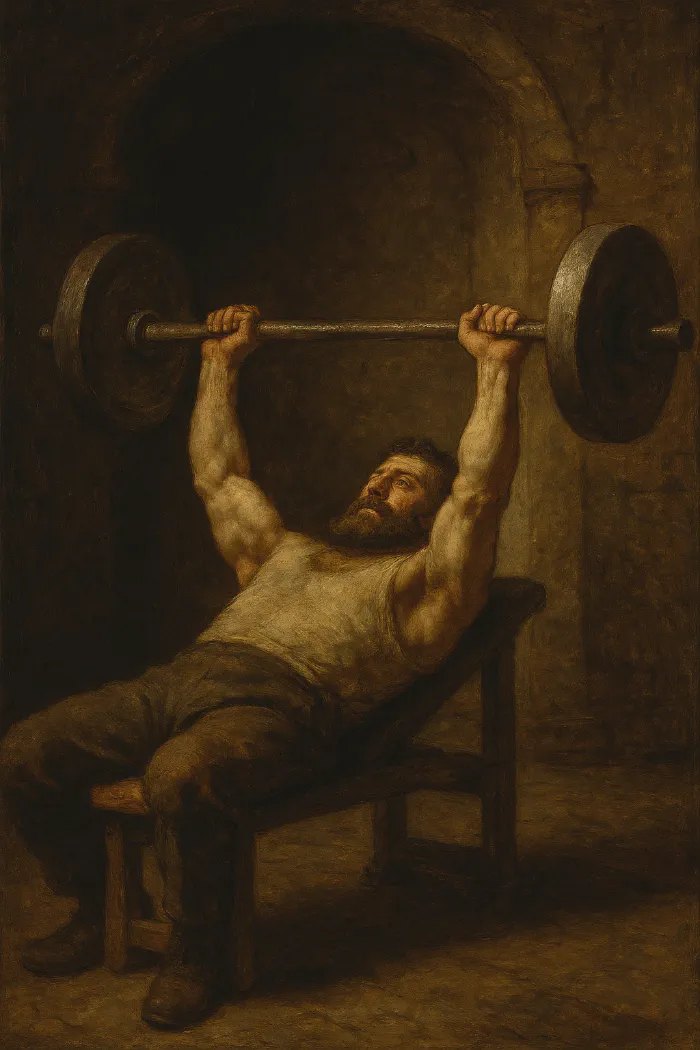The Problem of Pain by C.S. Lewis, mainly addresses a problem of why pain exists in this world if we have an omniscient and omnipotent God. In the middle an axiological expectation mismatch, a problem that exists between personally held beliefs and observations, it is also reasonable to see why people would want to put a pause in their belief in a God. With such an internal conflict, someone may because lost and lose a sense of meaning.
I strongly believe that feeling lost while having an internal conflict is not permanent, and a readjustment period is needed. I want to compare this to weightlifting. Weightlifting is a thing that I am studying, and I think it can make for an apt simile.
I started to weightlift in 2018, because I felt that I would need some exercise habit if my career was going to be a desk job. It felt obvious that my health could suffer if I wasn’t going to make an effort to be active. As I dedicated to weightlifting, I saw and felt improvements in my quality of life. I wasn’t slouching nearly so much, and my overall health just felt better. So I kept going to the gym to train.
Now 7 years later, I am in advanced experience of weightlifting. My experience level might as well be around 5 years of consistent gym attendance, since I ended up taking a break for COVID. Nevertheless, I am finding that I need to fine tune my technique and form in order to make any decent progress in my lift. One of those lifts is bench press.
When I first started to bench press, my progress was great. Then I heard some advice about the difference between narrow, medium, and wide grip: narrow grip activates more triceps; medium grip is a balance of triceps, front deltoids, and pectorals; and wide grip was supposed to be all pectorals. So I thought to completely swap to a wide grip. Having done a wide grip for some time now, I thought that I would have more progress. Then I watched a video from Dr. Israetel talking about what cues to look out for in the bench press. So in my next workout, I wanted to see if I could feel the muscle activation.
Out of all the muscles I previously mentioned, I figured that I would want to feel the pectoral muscles more, since those are the bigger muscles. In my workout, I grabbed a barbell with no weight, and I did slow eccentric reps to see where I can feel the muscle activation. I found something slightly suprising; with the wide grip, I felt more muscle activation in my shoulder. I decided to shake the rep up by lowering the rep below my nipple line, and there I felt the pectoral muscles start to activate. Then I swapped to a medium grip, and there I felt the most pectoral muscle activation.

A man trains bench press.
This was an interesting lesson for me. My original grip was a medium grip, and there I had the most pectoral muscle activation. But then I got sidetracked with other grips, so I didn’t really know why I should have done a medium grip. Now I know why I should do a medium grip considering my arm length and angles. With this new knowledge, I hope to progress further in my weight training.
Going back to my original point, I try to explain my simile to my best ability. In the middle of my weight training habit, I heard advice to try a different grip for bench press. While a different grip is still beneficial, it’s beneficial in its own way. My goal is to get stronger with the bench press, and I needed to leverage the bigger muscles in order to get stronger.
Likewise, in the middle of an internal conflict of beliefs and observations, something has to change in order to leverage the bigger force and for the world to make more sense. Once the bigger force is leveraged, then the conflict is navigable. If no changes are done, then pain persist and no progress is made.
How can one reconcile beliefs and observations? From my personal experience, it takes a lot of effort and study. Are observations perceived wrongly? The way to answer this is to diligent study your own observation and other observations. Is a belief held wrong? Study and explore that belief to see if it holds water, or it stands up to other things taught. Once those are studied individually, see how the two hold up together. If something seems out of place, then go study again.
If there is no sincere intention to understand why there is a conflict between observations and belief, I fear that pain and uncertainty will continue to exist in that regard. I believe that one person may overcome deep pain through patience and study. When needed, help like therapy or a good friend may certainly be an option to overcome this deep pain. Changing the approach to the observed world and changing beliefs may be necessary in order to overcome pain.
